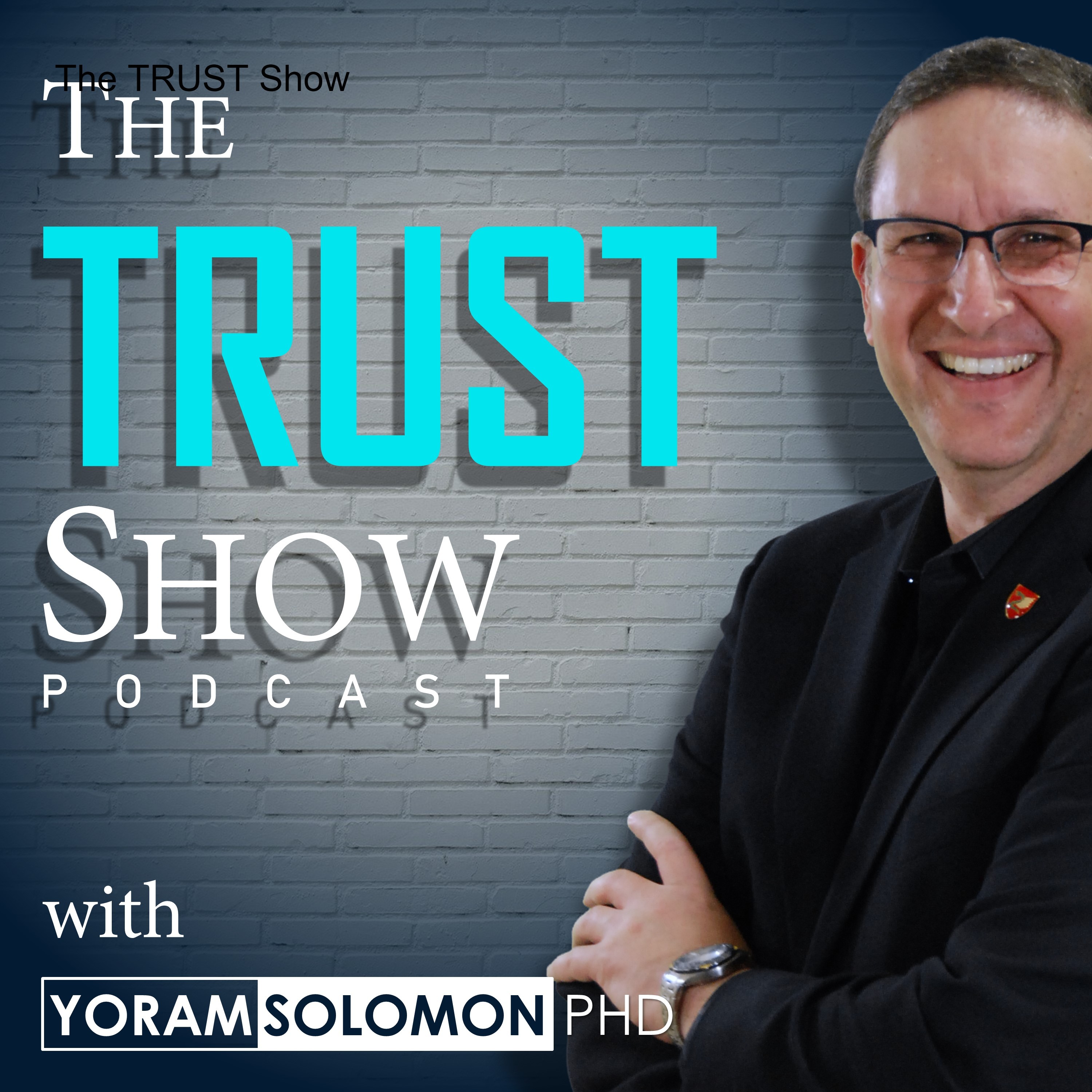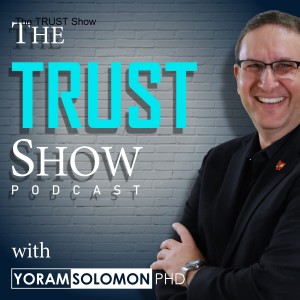
16.2K
Downloads
191
Episodes
Trust is not what you think it is. It is not absolute or universal. Trust is relative. The same behavior that would cause one person to trust you could cause another person to distrust you. The level of trust someone has in you is the product of their trustfulness (their willingness to trust other people) and your trustworthiness. There is almost (I said ALMOST) nothing you can do about the former, and everything you can do about the latter. Because of that, you must evaluate your own trustworthiness one relationship at a time, separately. Odds are, though, that the same behaviors that are holding you back from being more trusted in one relationship are holding you back from being more trusted in other relationships. Welcome to The Trust Show. I’m your host, Yoram Solomon, a top 10 trust expert and researcher, the author of the book of trust, and the creator of the Trust Habits® workshop that helps people and organizations form new habits that change old behaviors, build trust, and transform organizations. In this educational podcast, I will challenge you to think differently about trust, through the 8 laws of trust and the 6 components of trustworthiness. I will share my own stories, experiences of others, trust research, and sometimes, reflect on a news item. And through those, I will show you how to build trust, be trusted, and know who to trust. Because the answer to this question will have the biggest impact on your personal and professional, success or failure: can you be trusted?
Episodes

Tuesday Apr 01, 2025
S16E13: The Customer is Not Always Right
Tuesday Apr 01, 2025
Tuesday Apr 01, 2025
In this episode, I read Chapter 12 of The Trust Premium, which marks the start of Part III: Behaviors That Will Make Your Customers Trust You. This chapter covers the first of five key trust-building behaviors—and it challenges the old mantra that “the customer is always right.”
Instead of defaulting to agreement, trusted professionals know when to speak up, when to offer guidance, and when to say “no.” In this episode, we explore how professional integrity, respectful pushback, and honest conversations create stronger, more trusted relationships with clients—and ultimately, earn you the Trust Premium.
And always remember: not all customers are alike. Some truly just want to be right—and sometimes, they actually are. Being a trusted advisor also means staying open to the possibility that you might be the one who’s wrong.

No comments yet. Be the first to say something!